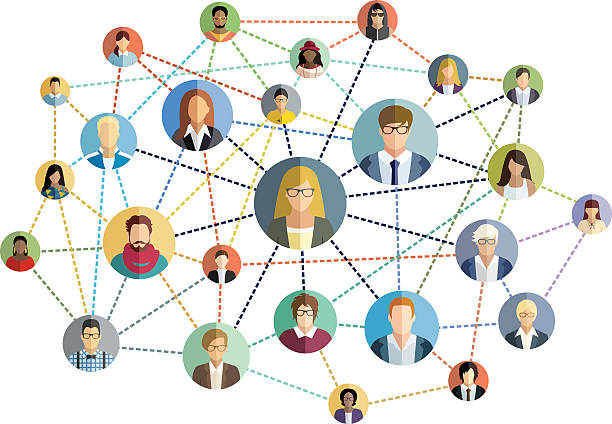The Unseen Lifeline: The Importance of Support Networks for Psychological Well-being
Introduction: A Family’s Journey
In the heart of Bangalore, amidst the technological hustle and urban sprawl, lived a family facing an unseen battle. Meera, a dedicated software engineer, and her husband Ramesh, a marketing executive, were raising their teenage son, Arjun. Arjun had been diagnosed with depression and anxiety, turning their lives into an emotional rollercoaster. The days were long and the nights were filled with worry, as Meera and Ramesh struggled to support Arjun while managing their own stress and uncertainty.
This story isn’t just about Meera, Ramesh, and Arjun; it’s about many families facing similar struggles. It’s about the importance of support networks in navigating the complexities of psychological disorders. Through this blog, we will explore the significance of support networks, their transformative impact, and how they can provide a lifeline to those in need.
The Challenge of Psychological Disorders
Psychological disorders such as depression, anxiety, bipolar disorder, and schizophrenia can affect anyone, irrespective of age, gender, or socio-economic background. The impact of these disorders is profound, affecting not only the individual but also their family and community.
Understanding the Impact
- Emotional Strain: Individuals with psychological disorders often face intense emotional struggles, which can lead to feelings of hopelessness, frustration, and isolation.
- Behavioral Changes: Disorders can result in behaviors that are challenging to manage, both for the individual and their loved ones.
- Social Barriers: Forming and maintaining relationships can be difficult, leading to further isolation and loneliness.
- Academic and Professional Challenges: Mental health issues can impact academic performance and job productivity, affecting overall life satisfaction.
For parents, the journey can be equally challenging. The constant worry, the need for specialized care, and the desire to see their child thrive can be overwhelming. This is where support networks can make a significant difference.

The Power of Support Networks
Support networks are essential in providing emotional, social, and practical assistance to individuals and families dealing with psychological disorders. They offer a sense of belonging, reduce feelings of isolation, and provide practical advice and emotional comfort.
Key Elements of Effective Support Networks
- Emotional Support: Providing a safe space for individuals to express their feelings and share their experiences without judgment.
- Practical Assistance: Offering help with day-to-day tasks, navigating healthcare systems, and accessing resources.
- Social Connections: Facilitating connections with others who understand and share similar experiences.
- Informational Support: Providing reliable information about psychological disorders, treatment options, and coping strategies.
- Advocacy: Working to reduce stigma and advocate for better mental health services and policies.
A Success Story: The Support Network That Changed Arjun’s Life
Let’s delve deeper into Meera, Ramesh, and Arjun’s story to see how a support network can change lives.
The Struggle
When Arjun was first diagnosed with depression and anxiety, Meera and Ramesh felt lost. They didn’t know how to help their son or where to turn for support. The stress took a toll on their relationship and their ability to cope with everyday challenges.
Finding a Support Network
Desperate for help, Meera joined a local support group for parents of children with psychological disorders. The group met weekly at a community center and was facilitated by a trained counselor. Here, Meera found other parents who understood her struggles, offered practical advice, and provided emotional support.
Ramesh found solace in an online forum for parents and caregivers. The forum was a treasure trove of information, from articles on coping strategies to personal stories of resilience and hope.
The Transformation
The support network provided Meera and Ramesh with the tools and confidence they needed to support Arjun. They learned about the importance of therapy, medication, and lifestyle changes. More importantly, they learned how to communicate effectively with Arjun, offering him the support he needed without overwhelming him.
Arjun, too, benefited from a peer support group for teenagers with depression and anxiety. The group provided a safe space for him to share his feelings and connect with others who understood his journey. The peer support group helped Arjun realize that he was not alone and that there was hope for recovery.
The Ripple Effect
The positive impact of the support network extended beyond Arjun and his family. Meera and Ramesh began advocating for mental health awareness in their community, organizing workshops and awareness campaigns. Their efforts helped reduce the stigma associated with psychological disorders and encouraged other families to seek support.
Steps to Building a Support Network
Creating and maintaining a support network for individuals with psychological disorders is a crucial step towards healing and resilience. Here’s a step-by-step guide to get started:
1. Identify Your Needs
Assess the specific needs of the individual and their family. This could include emotional support, practical assistance, information, or advocacy.
2. Seek Professional Help
Engage with mental health professionals such as therapists, counselors, and psychiatrists. They can provide valuable guidance and connect you with relevant support groups and resources.
3. Join Support Groups
Look for local support groups or online communities that cater to your needs. These groups can offer emotional support, practical advice, and a sense of community.
4. Build a Personal Network
Reach out to friends, family, and colleagues who can offer support. Be open about your needs and encourage them to educate themselves about psychological disorders.
5. Utilize Technology
Online forums, social media groups, and mobile apps can be excellent resources for connecting with others, accessing information, and finding support.
6. Advocate for Awareness
Participate in or organize mental health awareness campaigns and events. Advocacy helps reduce stigma and encourages others to seek support.
7. Continuous Evaluation
Regularly assess the effectiveness of your support network and make necessary adjustments. Seek feedback from group members and professionals to ensure the network remains relevant and supportive.
The Role of Parents and Caregivers
Parents and caregivers play a crucial role in the success of support networks. Here are some ways they can contribute:
Active Participation
- Engage: Attend support group meetings and actively participate in discussions.
- Volunteer: Offer to help organize meetings, events, or workshops.
- Share: Share your experiences and coping strategies with others.
Advocacy and Awareness
- Speak Up: Share your story to raise awareness about psychological disorders and the importance of support networks.
- Educate: Educate your community about mental health and advocate for better services and policies.
Support and Solidarity
- Be There: Offer emotional support to other parents and caregivers.
- Resource Sharing: Share useful resources such as books, articles, and contact information for mental health professionals.
The Broader Impact
Support networks for individuals with psychological disorders have far-reaching benefits. They not only support the individuals and their families but also enrich the entire community. Here’s how:
Breaking the Stigma
Support networks help break down the stigma associated with psychological disorders by fostering understanding and acceptance.
Building Inclusive Communities
Inclusive networks teach individuals the value of diversity and acceptance, creating a more compassionate and supportive community.
Enhancing Mental Health Awareness
Increased awareness about psychological disorders leads to better mental health practices and support systems within the community.
Conclusion: A Call to Action
Meera, Ramesh, and Arjun’s story is just one of many. There are countless families out there who are looking for support, understanding, and hope. Support networks for individuals with psychological disorders are not just beneficial; they are essential. They provide the foundation for emotional, social, and practical support, helping individuals and families navigate the complexities of mental health.
If you are inspired by this journey, consider how you can contribute. Whether it’s by joining a support group, volunteering, or advocating for mental health awareness, every effort counts. Together, we can create a world where individuals with psychological disorders are understood, supported, and celebrated.
Final Thought: A Lifeline of Hope
As Meera and Ramesh watched Arjun smile and laugh with his peers, they felt a profound sense of gratitude. The journey had been challenging, but the support network had made all the difference. Arjun was thriving, and they had found a community of friends and allies.
This lifeline of hope is possible for every individual and family facing psychological disorders. It begins with understanding, support, and the unwavering belief that every person deserves to be seen, heard, and supported.

